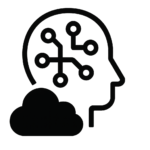The world of software development is in constant flux, but few forces have driven as profound a shift as artificial intelligence. What once seemed like science fiction is now an everyday reality, with AI tools seamlessly integrating into developer workflows, promising not just incremental gains but a fundamental redefinition of productivity. In 2025, developers are finding themselves empowered by intelligent assistants, automated guardians of code quality, and even AI “colleagues” capable of tackling complex engineering tasks.
I have written a bunch of articles in CODE Magazine about AI. All of them have focused on learning AI, such as image generation, creating a local chat bot, and more. But what if you’re not an AI developer? Maybe you’re a ReactJS developer writing front-end code all day long. Or maybe you write REST APIs using Python all day long.
Let’s be honest, AI is exciting, but many of us are still working day-in-day-out delivering business functionality code, things your employer needs today. Should you ignore AI? Far from it. This article explores how AI is boosting developer productivity across the software development lifecycle, complete with practical examples to illustrate its transformative power.
The AI-Powered Developer: A New Paradigm
As of today, at its core, AI for developers isn’t about replacing human creativity; it’s about augmenting it. By offloading repetitive, time-consuming, and error-prone tasks, AI frees developers to focus on higher-level problem-solving, architectural design, and innovative solutions. This shift fosters a more engaging and less frustrating development experience.
Let’s dive into the key areas where AI is making a tangible difference.
There are many ways I see that AI can help you as a developer. This is by no means an exhaustive list, if you have ideas do share.
AI as Your Pair Programmer
The most visible and widely adopted application of AI in development is in code generation and intelligent completion. There are many competing tools you can use. Tools like GitHub Copilot, Tabnine, and Amazon CodeWhisperer act as highly intelligent pair programmers, anticipating your next move and suggesting relevant code snippets, entire functions, or even boilerplate structures. In fact, there are VSCode extensions that let you plug into any AI model to get specific help for your scenario. You can even use Ollama to run things locally if you’re in an air-gapped secure environment. Of course, the capabilities of cloud-based models are far ahead of what Ollama on your local machine can do, but Ollama with a local model is still superpowers that you didn’t know you had.
There are many benefits of incorporating AI as your pair programmer.
The first is, of course, speed. Using AI drastically reduces the time spent on writing repetitive code or searching for syntax. How often do you find yourself struggling to find the right syntax for a particular thing you’re trying to do? Or writing repetitive code that you know you can write, but would rather have a helper write for you, and maybe even write it better than you? Like, find username out of a jwt token. I know how to do this, I just wish I didn’t have to do this in every project I land in. Yes you decode the token, which means first convert base 64 to JSON, oh wait, first separate the three parts of the token, validate the signature, blah blah! Dear AI: Just do this for me, please?
The other obvious advantage is accuracy. Using AI minimizes typos and common syntax errors, leading to fewer debugging cycles. When I was a programmer in my teens, I took great pride in my accuracy and typing capabilities. I could type at > 140WPM without errors. Alas, as time has passed, my fingers have too grown older. I do make mistakes now. Unfortunate mistakes that take forever to find the errors they introduce. All because of a stupid typo. If I can have Microsoft Word correct my spelling mistakes, wouldn’t it be nice if AI can fix the errors my IDE cannot catch?
And finally, like any good pair programmer, I learn from my AI buddy. See I’ve never been a fan of pair programming. I know I know, you can put those daggers back in their sheaths. But I learn differently from others. When I’m deep into programming, I don’t want another person interrupting my thought process, or constantly interrupting asking questions. Pair programming may be great for the new person on the team, but as an experienced programmer (sorry for putting myself on a pedestal), I found pair programming was a lot of giveth and not enough taketh. I want to pair program with someone better than me, and those can be hard to find.
…this article is continued online. Click here to continue

 Add to favorites
Add to favorites
